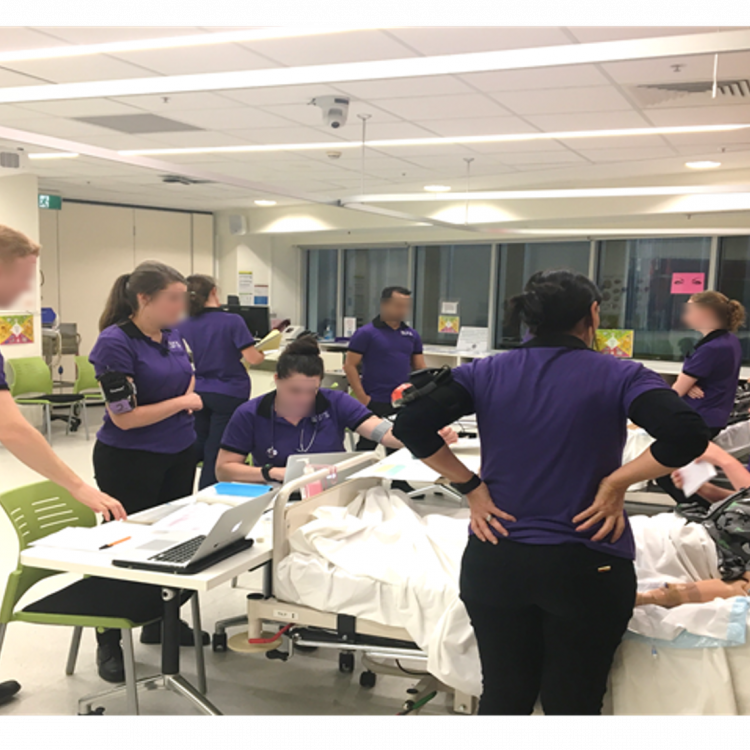I am seeking PhD candidates interested in designing and connecting Multimodal Learning Analytics solutions according to the pedagogical needs and contextual constraints of teamwork occurring across physical and digital spaces.
Research projects in Information Technology
Displaying 181 - 190 of 197 projects.
Individual-based simulations for sustainable insect-plant interactions
Insects are vital components of natural and agricultural ecosystems that interact with plants in complex ways. Computer simulations can help us understand these interactions to improve crop production, and to assist us to sustain our natural ecosystems as we change the Earth's climate. This technology is vital to inform our strategies to protect global food supplies and manage our national parks and forests.
Social network sites as a source of ecological data
This project builds on research in which geo-tagged social network site images are used to determine insect and flowering plant distributions on a continent-wide scale. This work was awarded an "AI for Earth" grant by Microsoft, one of only 6 projects in Australia to receive this recognition.
Online algorithm configuration in Mixed-Integer Programming solvers
Mixed-Integer Programming (MIP) solvers are very powerful tools to solve combinatorial problems that arise in many industries. Modern MIP solvers usually run a sequence of algorithms to solve the input instance: first it preprocesses the instance, then it solve its Linear Programming Relaxation, runs cutting plane algorithms, primal heuristics, then the branch-and-bound. How much time is devoted to each of these types of algorithms is decided online, but once the next stage of solving has started, there is no turning back.
Discrete Optimisation for Multi-Agent Path Finding
The Multi-Agent Path Finding (MAPF) is a combinatorial problem in which agents must find a path from a start to a goal location without colliding with each other. The optimisation group at Monash is leading research in this area and has designed some of the most efficient methods to solve MAPF. Companies like Amazon have funded the optimisation group at Monash to do research on MAPF as it relies on this technology for its automated warehouses and fulfilment centres.
The Ethics of AI Art
In recent years, AI techniques such as GANs and associated deep learning neural networks have become popular tools applied to the production and creation of works of art. In 2018, AI Art made headlines around the world when a “work of art created by an algorithm” was sold at auction by Christie’s for $432,500 – nearly 45 times the value estimated before auction.
Teaching Robots to Draw
We normally think of drawing as an (almost) exclusively human activity. The idea behind this research is to explore the concept of post-anthropocentric creativity. We want to understand what art made by an autonomous, non-human intelligence might look like, and if artificial systems can exhibit what we recognise as creative behaviour. This behaviour and the drawings produced might not be the same as what humans would do.
Quantum-Resistant Public-Key Cryptography
Since the 1990s, researchers have known that commonly-used public-key cryptosystems (such as RSA and Diffie-Hellman systems) could be potentially broken using an efficient algorithm running on a hypothetical quantum computer based on the principles of quantum mechanics. This potential threat remains a theoretical possibility, but may become a real threat in coming years due to significant advances in quantum computing technology.
Quantum Resistant Cryptographic Protocols
Cybersecurity is regarded as a high priority for governments and individuals today. With the practical realization of quantum computers just around the corner, classical cryptographic schemes in use today will no longer provide security in the presence of such technology. Therefore, cryptography based on “Post-Quantum” (PQ) techniques (that resists attacks by quantum computers) is a central goal for future cryptosystems and their applications.
Algorithm Selection for Automated Program Repair
Automated Program Repair (APR) is the grand challenge in software engineering research. Many APR methods have shown promising results in fixing bugs with minimal, or even no human intervention. Despite many studies introducing various APR techniques, much remains to be learned, however, about what makes a particular technique work well (or not) for a specific software system.








